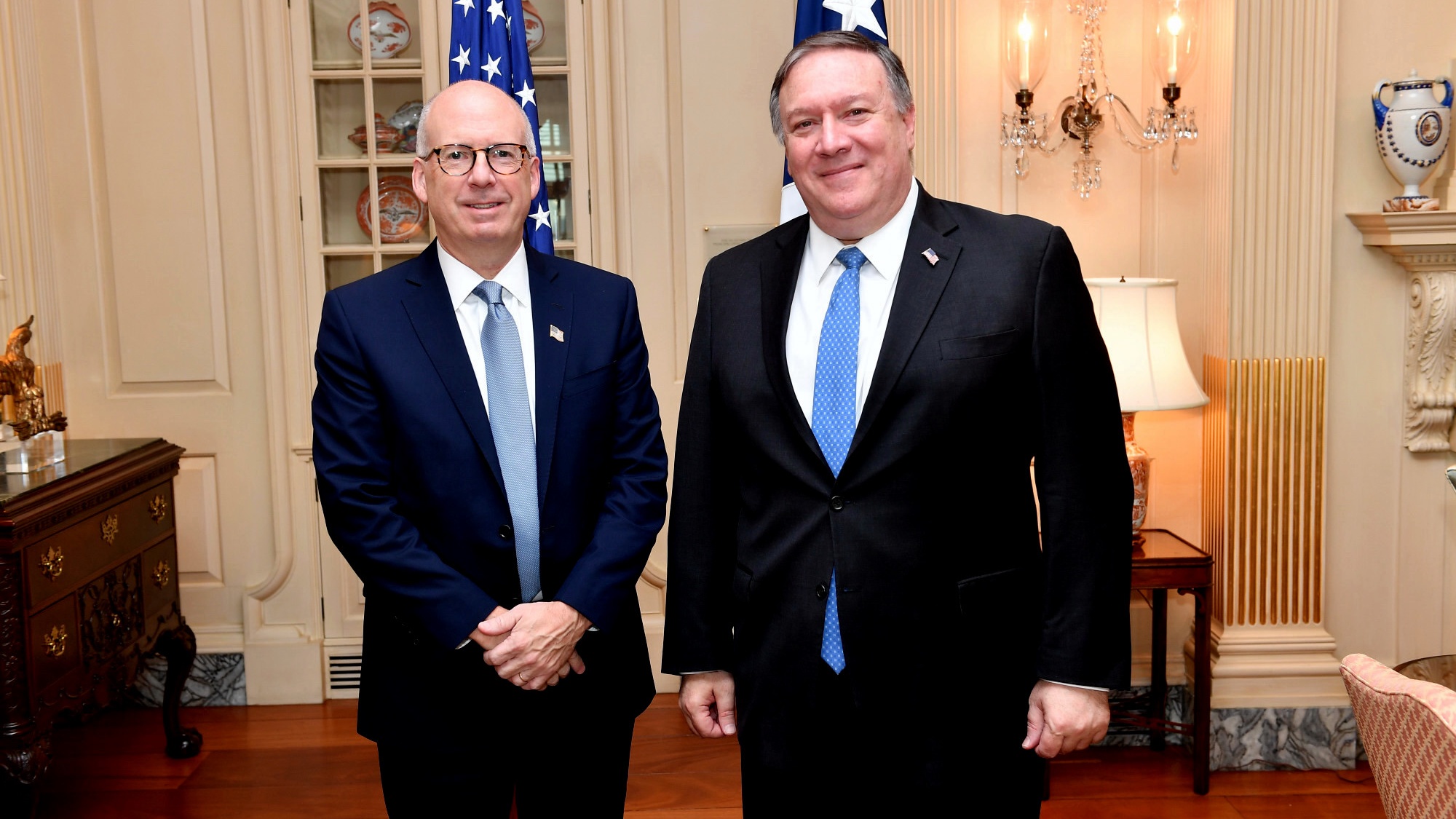In a text-book application of former Chicago Mayor Rahm Emmanuel’s infamous quote of never letting “a serious crisis go to waste,” the State Department’s Chief Information Officer (CIO), Stuart McGuigan, credits the COVID-19 pandemic with spurring the “modernizations” that are currently taking place in the IT infrastructure at the U.S. Bureau of Information Resource Management (IRM).
The IRM is responsible for maintaining a global, information exchange network comprising more than 275 diplomatic missions around the world. “In the span of three months, we probably advanced the state of IT modernization to a degree that normally would have taken up to four or five years,” said Principal Deputy CIO Michael Mestrovich.
The changes had already started taking place a year ago when the department began moving to cloud services following the creation of the Cyber and Technology Security (CTS) Directorate in 2017 and prior discussions over how to best deliver “a secure infrastructure and platform to the department,” which ultimately resulted in the implementation of Microsoft’s 365 platform and CISCO Webex.
The oldest branch of the U.S. Executive today has “107,000 technology users, including foreign service, civil service, contractors, and local staff – both domestic and overseas.” The scale of the change is easily grasped by the fact that in February when the Department of State initiated its “pandemic footing,” the number of teleworking employees barely numbered in the hundreds. Up to that point, remote work was considered an “accommodation” rather than the norm.
It’s going to cost you
Stuart McGuigan was appointed as the Department of State’s first permanent CIO in March of 2019 after fifteen months of that position sitting vacant. McGuigan comes off a seven-year stint as CIO for Johnson & Johnson and former CIO of CVS Caremark prior to that. His ties to big pharma run deep with a previous role as Director of Information Planning at Merck.
McGuigan was installed at the State Department after an executive order by Trump gave government CIOs authority over hiring and budget. Among the first things McGuigan did was establish an IT Executive Council (ITEC) to oversee the effort to “evaluate the needs of each bureau and office” in regards to IT.
The pandemic will see State emerge “from this a really technically enabled, fully collaborative department,” according to McGuigan. State Department employees who will now mostly log onto a browser to log into Microsoft’s Office 365. The costs associated with putting identity management and collaboration systems on private cloud services are high. “Now, you pay for that,” says former DIA official Mestrovich. “You’re paying for consumption costs and paying extra licensing costs. But, if you want to talk about flexibility and ease of expansion, we let the cloud platforms do exactly what they did best.”
A captive, insecure market
Most of the State Department’s $2.2 Trillion-dollar IT budget was put in the hands of McGuigan after Trump’s executive order and the breach of its unclassified email system a few months earlier conveniently exposed a ‘problem’ that had to be solved. McGuigan stepped into his first government role from the private sector and has proceeded to deliver fat contracts to Microsoft and Cisco, among others.
The pitch we’re given is about scalability and adaptability. Jared Kushner, head of the White House Office of American Innovation asserted that the “true answer to modernizing government technology is to build the capacity to conduct change on an ongoing basis.” Empowering CIOs through Trump’s EO, he continued, “is a critical step forward in building that change management capacity.”
McGuigan summed up his goal at State as that of creating a “living, breathing prioritization and planning mechanism” to unleash the ‘untethered diplomat’ who could perform their work anywhere, “whether it’s a coffee shop in Maine, an embassy in Sudan or a field outside Kabul.”
But, how secure can such private enterprise networks really be? Especially considering the slew of backdoors that are known to exist in such software and the ties to Israeli intelligence agencies, that have been exposed by MintPress News, such as the Leidos-Lockheed Martin IT hybrid, which provides “a litany of services to the U.S. military and U.S. intelligence.”
Microsoft, which also has deep ties to Israeli intelligence and is now handling most State Department communications, has “partnerships with election technology suppliers responsible for more than half of the voting machines sold in the U.S.” and is selling its “ElectionGuard” system developed with a $10 million-dollar investment from DARPA to various states around the country.
It is increasingly becoming apparent that the “market-driven” initiatives like the IT restructuring being conducted at the State Department and other agencies of the U.S. government are simply cover for a wholesale transfer of the government, itself, directly into the hands of the very corporations that will soon enough drop the pretense of democracy altogether.
Feature photo | Secretary of State Mike Pompeo (right) poses with the head of the Bureau of Information Resource Management, Stuart McGuigan. Michael Gross | State Department photo
Raul Diego is a MintPress News Staff Writer, independent photojournalist, researcher, writer and documentary filmmaker.
The post State Department Credits Pandemic with IT Privatization appeared first on MintPress News.
